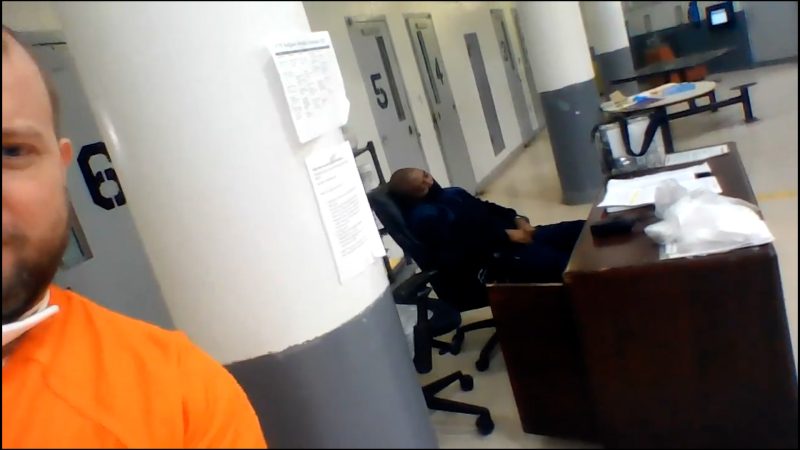In the recent turn of events following the January 6 Capitol riot, concerns have surfaced regarding the treatment of defendants in custody. A video posted by an attorney representing one of the defendants captures a D.C. jail guard seemingly asleep on duty, highlighting potential issues within the correctional system.
The footage, which has since gone viral on social media, depicts the guard slumped in a chair with his head tilted back as he appears to be sleeping. This incident has raised questions about the level of supervision and oversight within the D.C. Department of Corrections, particularly with high-profile cases such as those linked to the Capitol breach.
While the attorney who shared the video expressed outrage at the lack of professionalism exhibited by the guard, critics argue that this isolated incident does not necessarily reflect the overall standard of care provided to inmates. However, the broader implications of such lapses in vigilance cannot be ignored, especially when dealing with individuals awaiting trial for serious offenses.
The handling of defendants awaiting trial is a critical aspect of the judicial process that must adhere to certain standards to ensure the rights and well-being of all individuals involved. Mistakes or oversights in this realm can have significant consequences, not only for the defendants themselves but also for the public perception of the justice system as a whole.
In response to the video, the D.C. Department of Corrections issued a statement acknowledging the incident and stating that an investigation would be conducted to determine the circumstances surrounding the guard’s behavior. Additionally, measures would be taken to prevent similar occurrences in the future, emphasizing the importance of maintaining a high standard of professionalism and attentiveness in correctional facilities.
As discussions surrounding the treatment of January 6 defendants continue to unfold, this incident serves as a stark reminder of the need for transparency, accountability, and adherence to protocols within the correctional system. The implications of such lapses extend beyond individual cases and underscore the broader issues that warrant attention and reform within the criminal justice system.
